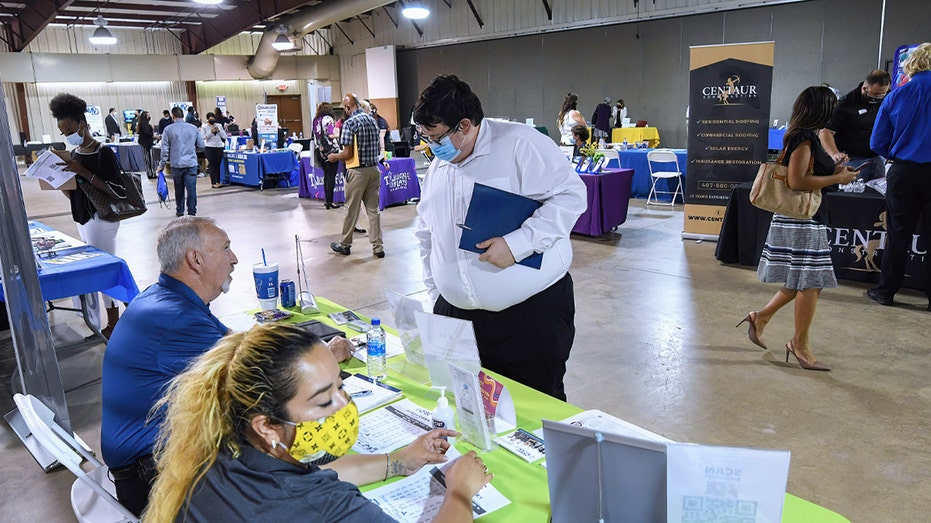Surprisingly strong January jobs report boosts odds of Fed half-point rate hike in March
More traders pricing in 50-basis point hike after strong January jobs report
US economy adds 467K jobs in January
The U.S. economy added more jobs than expected in January. Panel of experts weigh in on 'Mornings with Maria.'
The surprisingly strong January jobs report could force the Federal Reserve to kick off its interest-rate hikes next month with the steepest increase in two decades.
Traders are now pricing in over a 36% chance of a hefty half-point rate jump when policymakers meet next month, instead of a more modest quarter-point increase. It would mark the first time since 2000 that the U.S. central bank raised the federal fund rate by 50 basis points. The Fed has not raised rates since December 2018.
JANUARY JOBS REPORT SHOWS SURPRISINGLY STRONG GAIN OF 467,000, DESPITE OMICRON
"A strong jobs report, along with elevated inflationary economic data that we’ve seen recently, could boost expectations that we’ll see a 50-basis point rate increase at the March meeting," said Brian Price, head of investment management for Commonwealth Financial Network. "I still believe that 25 basis points is the base case at this point, but 50 is not off the table either."

In this Jan. 29, 2020, file photo, Federal Reserve Chair Jerome Powell pauses during a news conference in Washington. (AP Photo/Manuel Balce Ceneta, File / AP Newsroom)
The more aggressive outlook comes after the Labor Department said in its monthly employment report Friday that payrolls in January rose by 467,000, easily topping the 150,000 jobs gained forecast by Refinitiv economists.
The unemployment rate, which is calculated based on a separate survey, ticked up slightly to 4%. The increase in unemployment is due to the labor force participation rate climbing to 62.2%, the highest level since the pandemic began in February 2020.
The hiring jump comes despite a record-breaking number of COVID-19 infections that most economists warned would hinder job growth.
"The strong jobs report is good news for the economy and American workers," said Chris Zaccarelli, chief investment officer for Independent Advisor Alliance. "Unfortunately for the stock market, it should add to concerns that the Federal Reserve is going to be forced to raise rates more quickly and to a higher level, as wage growth jumped up to 0.7% on a month-over-month basis."
For months, the Fed has been wrestling with its dual mandate of stable prices and full employment. But the nation's jobless rate is currently at 4%, down from a pandemic high of 14.7%, while consumer prices surged 7% from a year ago. That marked the fastest pace for inflation since 1982 as consumer demand confronts a shortage of goods caused by congested ports and other pandemic-induced disruptions in the supply chain.
The Fed's next meeting is scheduled for March 15-16. After that, it has six more meetings in 2022 in May, June, July, September, November and December.

People seeking employment attend the 25th annual Central Florida Employment Council Job Fair at the Central Florida Fairgrounds. (Paul Hennessy/SOPA Images/LightRocket via Getty Images / Getty Images)
Some economists believe the Fed waited too long to confront the burst in inflation, while others have expressed concerns that moving too quickly to stabilize prices risks slowing hiring and potentially leaving many workers, particularly lower-income Americans, without a job. Hiking interest rates tends to create higher rates on consumers and business loans, which slows the economy by forcing employers to cut back on spending.
GET FOX BUSINESS ON THE GO BY CLICKING HERE
Fed Chairman Jerome Powell has left open the possibility of a rate hike at every meeting this year and has refused to rule out a more aggressive, half-percentage point rate hike, but he said it's important to be "humble and nimble."
"We’re going to be led by the incoming data and the evolving outlook," Powell told reporters during the Fed's January meeting.





















